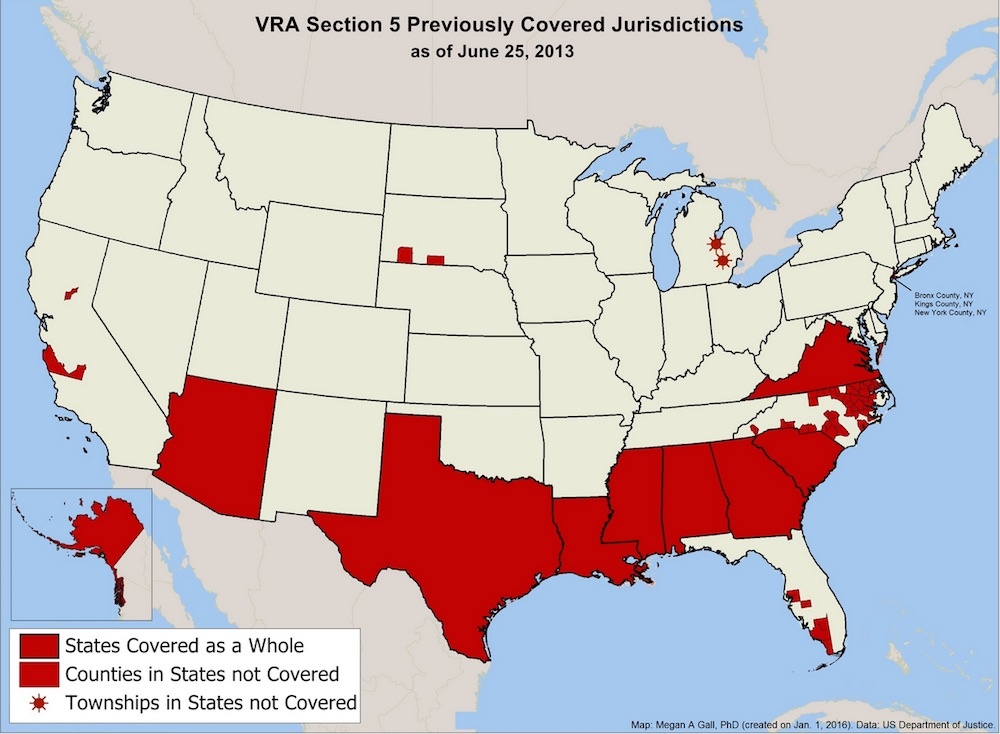INSTITUTE INDEX: Why an eviscerated Voting Rights Act matters in this year's election
Number of years ago this week that the U.S. Supreme Court handed down its landmark ruling in Shelby County, Alabama v. Holder, effectively striking down Section 5 of the Voting Rights Act (VRA) that required jurisdictions with a history of voting discrimination to get federal preclearance for election law changes: 3
As a result of that decision, number of states where voters were left without preclearance protections: 15
Of those states, number in the South: 9
Total number of states that now have new voting restrictions in place for the first time in a presidential election: 17
Of those states, number in the South: 8
In North Carolina, where 40 of the 100 counties were previously covered by the VRA's preclearance provision, number of discriminatory voting changes blocked by preclearance reviews between 1980 and 2013: more than 50
Number of days after the Shelby decision that the leader of North Carolina's Republican-controlled House introduced a wide-ranging voter suppression bill that eventually became law, which is now being challenged in the courts: 1
Percentage points separating GOP presidential candidate Donald Trump and Democrat Hillary Clinton in North Carolina in a poll released this week: 0
Percentage point difference in the polls for North Carolina incumbent Gov. Pat McCrory, a Republican, and his Democratic challenger, Attorney General Roy Cooper: 0
In Virginia, a state that was previously covered in full by the VRA's preclearance provision but which has since enacted a restrictive voter ID law, restrictions on community-based voter registration drives, and aggressive purges of immigrant voters, percentage-point difference between Clinton and Trump: 3
That poll's percentage-point margin of error: 3
Between 1992 and 2012, number of times the U.S. Justice Department objected to discriminatory election changes in Georgia alone, among the states that used to be fully covered by the VRA: 37
Number of discriminatory voting changes Georgia has implemented or attempted to implement since Shelby: nearly 20
Percent of the eligible voting-age population that is African-American in Georgia, North Carolina, Virginia, and the U.S. overall, respectively: 31, 22, 19, 11
Number of electoral votes in Georgia, North Carolina, and Virginia, respectively: 16, 15, 13
Number of bipartisan bills that have been introduced in Congress to address the enforcement gaps created by the Shelby decision: 2
Number of those bills that have advanced: 0
(Click on figure to go to source.)
Tags
Sue Sturgis
Sue is the former editorial director of Facing South and the Institute for Southern Studies.

